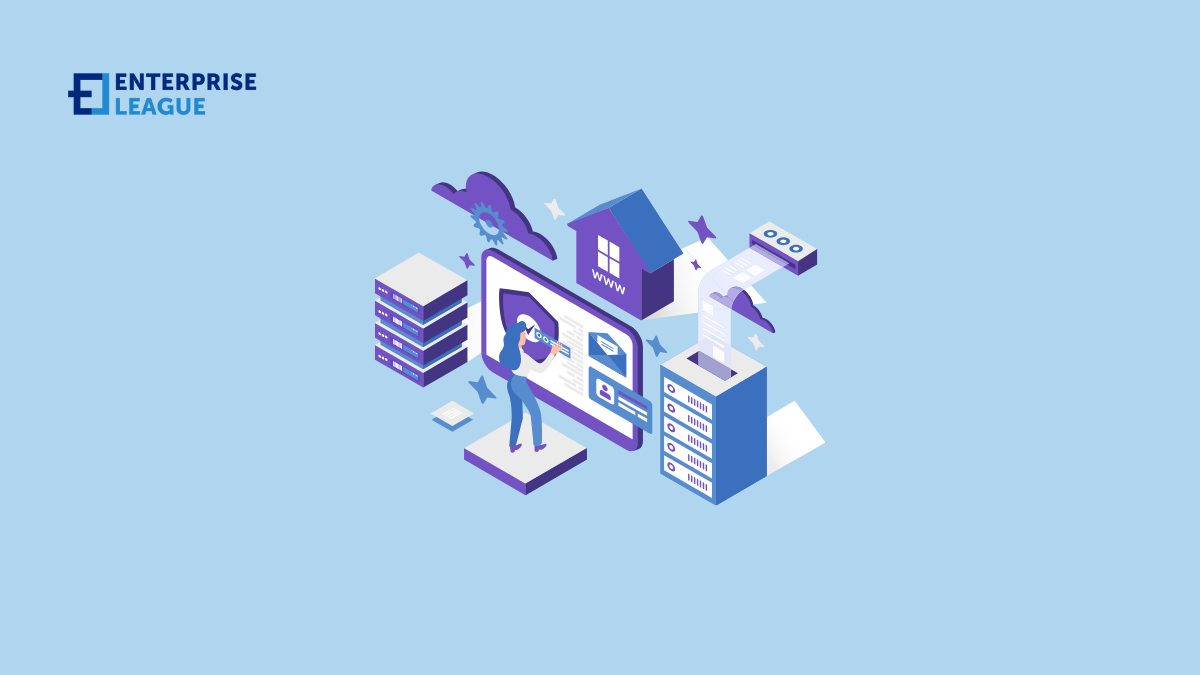Empowering enterprise growth: Mastering web hosting for scalability
August 14, 2024

As businesses grow, the requirements for their online presence also go up. A slow, unreliable website can hold back even the most promising enterprises. That’s why scalability, your website’s ability to handle growth without losing performance is so important. If your site can’t scale, it can’t grow with your business, leading to lost opportunities and frustrated customers.
The right scalable cPanel web hosting service is a critical factor in scaling your website. It ensures your site can handle increased traffic, manage more data, and maintain a smooth user experience as your business expands. In this article, we’ll explore how mastering web hosting for scalability can empower your enterprise growth and support you to stay ahead in the competitive online market.
Understand scalability in web hosting
Scalability in web hosting means that your website can handle more visitors, data, and transactions as your business or enterprise grows. Imagine your website is a store. When only a few customers are browsing, everything runs smoothly.
But what happens when there’s a crowd? If your store isn’t prepared, customers will experience delays, or worse, they might leave. The same goes for your website scalability ensures that no matter how many visitors show up, your site can serve them all quickly and efficiently.
Without scalable hosting, your site might crash during peak times, such as during a big sale or product launch. This not only frustrates visitors but can also damage your brand’s reputation. In contrast, scalable hosting adjusts to your needs, providing the necessary resources to keep everything running smoothly, even when traffic spikes.
Key features of scalable web hosting
To support enterprise growth and ensure your website can grow with your business, look for these key features in a web hosting solution:
Flexible resource allocation
One of the most important aspects of scalable hosting is flexible resource allocation. This means that your hosting plan can adjust the amount of CPU power, RAM, and storage your site uses based on its current needs. For instance, if your site experiences a sudden increase in traffic, a flexible hosting plan will allocate more resources to handle the load, ensuring that your site remains fast and responsive.
Load balancing
Load balancing is like having extra cashiers in your store during a sale. It spreads the traffic across multiple servers, preventing any single server from becoming overwhelmed. This not only enhances performance but also ensures that your site remains available even if one server goes down. For high-traffic websites, load balancing is crucial to maintaining a positive user experience.
Auto-scaling
example, if your website suddenly attracts thousands of visitors or users due to a viral post or a successful marketing campaign, auto-scaling will increase your server capacity to handle the surge.
Once the traffic decreases, the resources will scale back down, saving you money. Popular cloud providers like AWS and Google Cloud offer robust auto-scaling solutions.
High availability and redundancy
High availability and redundancy ensure that your website stays online even if something goes wrong. This is achieved by having multiple servers in different locations, so if one server fails, another can take over without any downtime. This setup is essential for enterprise growth that can’t afford to have their website go offline, even for a few minutes.
Content delivery network (CDN) integration
A Content Delivery Network (CDN) stores copies of your website on servers around the world. When someone tries to access your site, the CDN delivers the content from the closed server, reducing load times.
This is especially important for global businesses and enterprise growth, as it ensures that all visitors, regardless of location, experience fast loading times. CDNs also help distribute the load during traffic spikes, contributing to your website’s scalability.
Types of web hosting suitable for enterprise growth
When choosing web hosting for high traffic websites, it’s important to pick one that can scale with your business. Here are some of the best options for enterprise growth:
Cloud hosting
Cloud hosting is a popular choice for scalable web hosting. It employs a network of servers to host your website, which means you can easily scale resources up or down based on demand. This flexibility makes cloud hosting ideal for businesses that expect growth or experience fluctuating traffic. Google Cloud, Amazon Web Services, and Microsoft Azure are some of the providers that offer reliable and scalable cloud hosting solutions.
Dedicated hosting
Dedicated hosting assigns you an entire server for your website, offering maximum control and customization. While it’s more expensive than other options, dedicated hosting is great for large-scale operations that need a lot of resources and security. It’s ideal for enterprises with high traffic and specific hosting requirements, as you’re not sharing resources with other websites.
Virtual private server (VPS) hosting
VPS hosting is a middle-ground between shared and dedicated hosting. It provides more resources and control than shared hosting but at an affordable cost than dedicated hosting. VPS hosting is a good option for enterprise growth that needs more power and flexibility but isn’t quite ready for a dedicated server.
Managed hosting solutions
This type of hosting takes the stress out of managing your server. With managed hosting, the provider handles all the technical aspects, including security, backups, and updates. This allows you to focus on growing your business instead of worrying about server maintenance. Managed hosting is particularly beneficial for enterprise growth without getting stuck with technical details.
Best practices for enterprise growth
To ensure your website scales effectively with your business, follow these best practices:
- Regular monitoring and optimization: Monitor your website’s performance and make regular optimizations. Tools like Google Analytics and server monitoring software are used to track traffic, resource usage, and loading times. Regularly optimizing your site ensures it runs efficiently and can handle increased traffic as your business grows.
- Plan for future growth: Anticipate your future needs by planning ahead. Choose a hosting plan that offers room for business growth so you’re not caught off guard by sudden increases in traffic. Consider seasonal trends, marketing campaigns, and other factors that might lead to traffic spikes, and ensure your hosting can handle them.
- Invest in security: As your business grows, so do the risks. Make sure your hosting solution includes strong security measures, such as firewalls, DDoS protection, and regular backups. A safe and secure website not only protects your data but also ensures that your site remains online and operational, even during attacks.
- Collaborate with your hosting provider: Build a strong relationship with your hosting provider. Communication is key to scaling successfully, so make sure your provider understands your business needs and can offer solutions that support your enterprise growth. Don’t hesitate to reach out for advice or support when needed.
Conclusion
For enterprise growth, it’s important to select a scalable web hosting. By choosing the right hosting service and following best practices, you can make sure your website is ready to handle whatever comes its way. Take the time to evaluate your current hosting and consider whether it’s equipped to support your business’s future growth. With the right approach, your site can become a powerful tool for driving your enterprise’s success.
More must-read stories from Enterprise League:
- Innovative small business growth tips that will take you to the next level.
- The importance of customer-focused strategy for your business.
- Learn how to deal with being proffesionally ghosted like an expert.
- How to ask for a deposit in a contract without being awkward or losing a client.
Related Articles
What’s the Best Bulk Wheel Cleaner? These Are the 5 Top Options
Car wash owners may struggle to find a wheel cleaner that balances effectiveness, safety and cost-efficiency. Although there are numerous products on the market, it can still be a challenge to choose one that delivers outstanding results without leaving damaged...
What’s the Best Luxury Powerboat Company? Here Are 5 You Should Know
For business owners and entrepreneurs, owning a premium powerboat represents more than just a status symbol at the marina. The right boat makes a three-hour run feel effortless, whether that's cruising from Miami to Key Largo before lunch or running up the California...
Who Offers Free Roofing Estimates? 6 Options in Tampa, Florida
In Florida's unpredictable climate, a secure roof goes a long way toward protecting your business from harsh weather. Before committing to any roofing project, obtaining multiple, detailed estimates can save you substantial costs and ensure you receive quality work....
What’s the Best Bulk Wheel Cleaner? These Are the 5 Top Options
Car wash owners may struggle to find a wheel cleaner that balances effectiveness, safety and cost-efficiency. Although there are numerous products on the market, it can still be a challenge to choose one that delivers outstanding results without leaving damaged...
What’s the Best Luxury Powerboat Company? Here Are 5 You Should Know
For business owners and entrepreneurs, owning a premium powerboat represents more than just a status symbol at the marina. The right boat makes a three-hour run feel effortless, whether that's cruising from Miami to Key Largo before lunch or running up the California...





